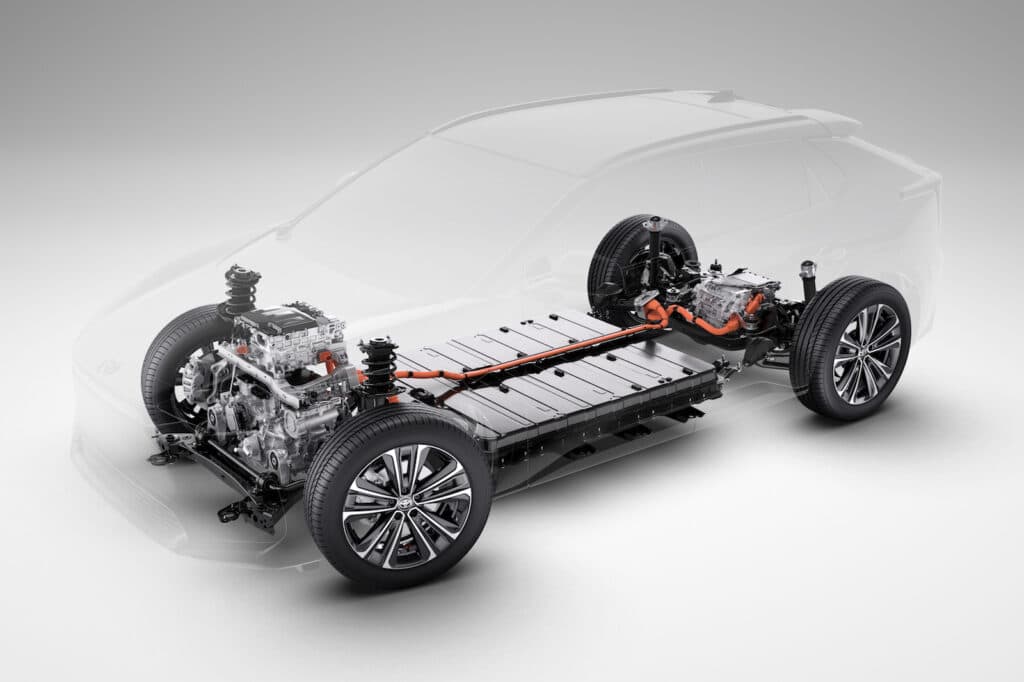Toyota Expands Investment in U.S. EV Battery Plant to $3.8 Billion
Last December Toyota revealed plans to build a $1.29 billion battery “megasite” in North Carolina to produce batteries for EVs and hybrids in the U.S. and now it’s investing an additional $2.5 billion — a total of $3.8 billion — in the facility.

The additional money will add 350 new jobs to the site, which is expected to begin production in 2025, for a total of 2,100 workers. However, it also helps ensure Toyota BEV and HEV buyers can qualify for the new electric vehicle tax credits taking effect next year as part of the Inflation Reduction Act.
“This marks another significant milestone for our company,” said Norm Bafunno, senior vice president, Unit Manufacturing and Engineering at Toyota Motor North America, in a statement. “This plant will serve a central role in Toyota’s leadership toward a fully electrified future and will help us meet our goal of carbon neutrality in our vehicles and global operations by 2035.”
Moving toward BEVs
The additional investment will add two production lines solely for batteries for Toyota’s fully electric vehicles. The four lines that are part of the original plans were aimed to making smaller batteries for hybrids, like the Toyota Prius, Bafunno told Reuters.
The batteries at the site will manufacture lithium-ion batteries using conventional electrode technology, which is a combination of nickel, cobalt and manganese for the cathode and graphite for the anode. However, more advanced technologies could be used in the future, officials said.

The original output for the North Carolina plant was 200,000 batteries per line annually, officials said at the time, but they allowed that if two more lines were added — which they are now — production would cover 1.2 million vehicles annually.
Toyota did not say in December or now what the capacity will be in terms of gigawatt-hours, the normal way of measuring battery production capacity. Conventional hybrids typically require somewhere between one to three kilowatt-hours of batteries. For large BEVs, that can jump to 100 kWh or more. The Toyota bZ4X, its first long-range offering targeting the U.S. market, is outfitted with a 73 kWh lithium-ion pack.
Last year, Toyota Motor Corp. officials said the company would invest about $70 billion in electrification, including the plant near Greensboro announced in December. In addition to the additional $2.5 billion coming for the North Carolina plant, the company plans to invest an additional $2.1 billion in battery production in the U.S.
The company didn’t reveal where or how the additional $2.1 billion will be spent.

A mixed future
But even though Toyota “is pro-BEV,” said U.S. marketing chief Mike Tripp last December, the automaker continues to follow a strategy that relies on a broad mix of different electrified drivetrain technologies.
It expects BEVs will generate only 15% of its global volume by decade’s end, about the same share as gas-only models. Together, conventional and plug-in hybrids are expected to account for two-thirds of its volume. Hydrogen fuel-cell vehicles will make up the rest.
Toyota has actually increased its sales forecast for BEVs since 2017 and, with key competitors such as Ford, General Motors and Volkswagen aiming significantly higher.
“We’re prepared for market adjustments. We can adjust,” said Tripp, with product planning chief Cooper Ericksen adding, “The key is remaining agile” enough to respond to both consumer demand and government mandates.
Whatever the individual mix of electrified products, automakers are largely aligned on the expectation that battery technology will go mainstream. And the rush is on to boost production capacity in North America, rather than continue relying on imported cells — most coming from Asia.
Auto Lovers Land
Comments
Post a Comment